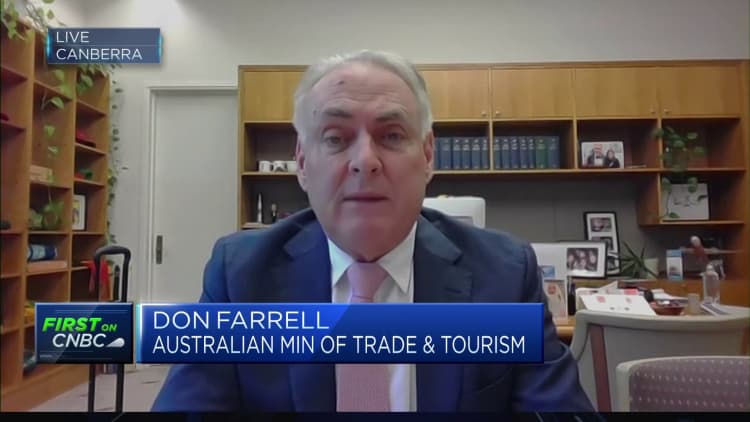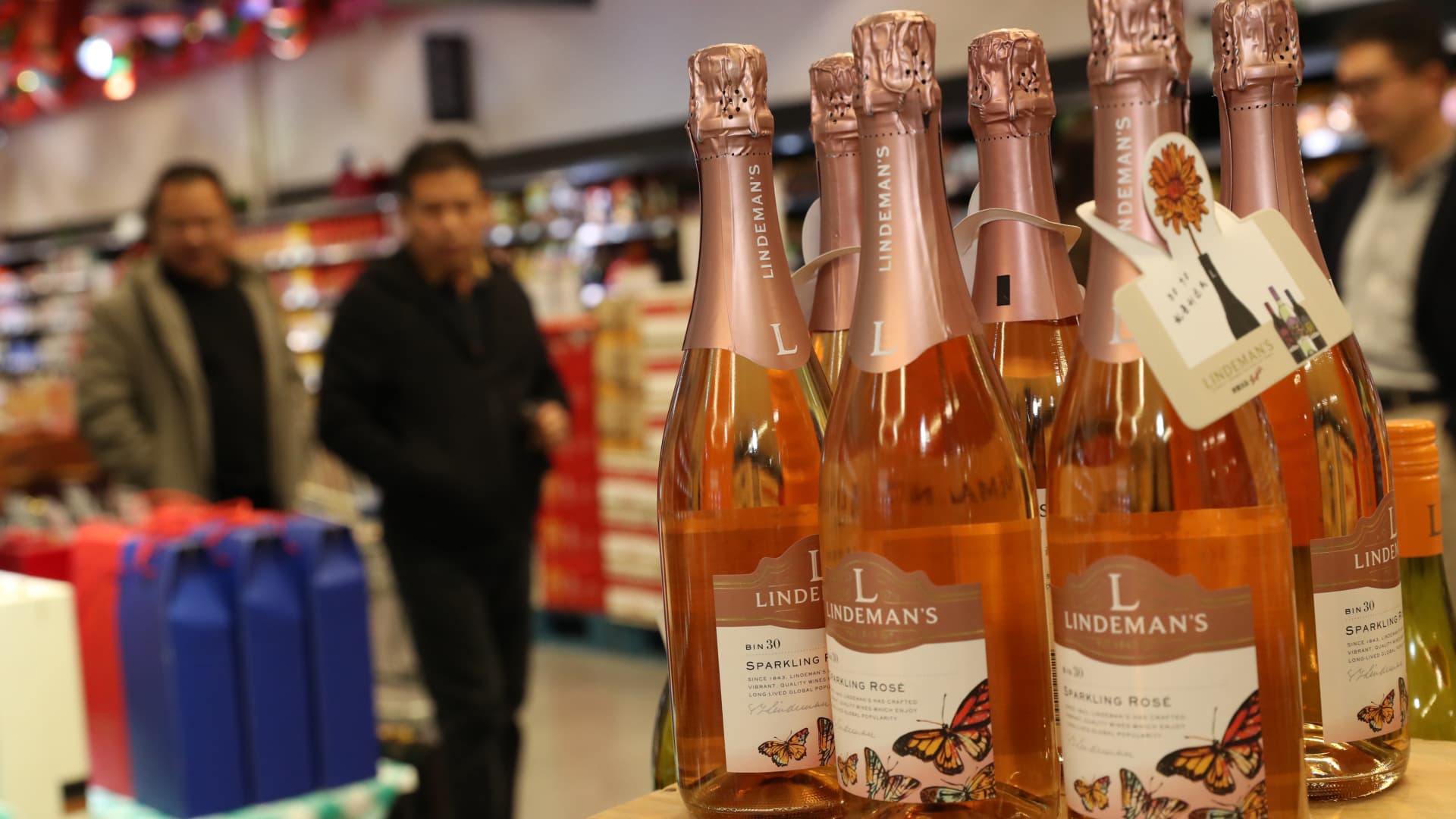
Australia has urged China to abolish all remaining trade restrictions after Beijing lifted tariffs on its barley imports, pointing to signs of a normalization in bilateral ties.
Canberra is expecting its largest trading partner to next drop tariffs on Australian wine imports that were introduced in March 2021. At the peak of diplomatic tensions in 2020 and 2021, Beijing slapped import tariffs on several Australian exports from wine and red meat to lobsters and timber.
related investing news


“We want all of the impediments removed that currently affect our trading relationship with China,” Trade Minister Don Farrell told CNBC Monday.
We think with some goodwill on both sides, that we can completely stabilize this relationship.
Don Farrell
Australian trade minister
“We always saw the barley application and the suspension of the barley application before the [World Trade Organisation] as a template for dealing with the wine issue,” he said. “So I think now’s the opportunity to have some further talks with the Chinese government.”
A decision on wine tariffs is “not very far away,” according to Farrell. “And of course, we’re extremely confident that the 220% tariffs that were applied to Australian wine will be removed.”
Thawing tensions
In April, Australia agreed to “temporarily suspend” its World Trade Organization complaint against China for its 2020 decision to impose 80.5% duties on Australian barley trade that was once worth about 1.5 billion Australian dollars ($988.1 million).
It paved the way for Beijing to expediate its review of the tariff decision.
Last Friday, the Chinese Commerce Ministry announced it was dropping all anti-dumping and countervailing duties on Australian barley starting Saturday — more than three years after they were imposed. The ministry cited “changes in the Chinese market” but did not further explain.
Bottles of wine imported from Australia are displayed for sale at a supermarket in Nantong Free Trade Zone on November 27, 2020 in Nantong, Jiangsu Province of China.
Vcg | Visual China Group | Getty Images
On Monday, Farrell said a “range of factors” were at play, with Chinese beer consumers and barley importers “very strongly in favor” of reintroducing Australian barley.
The move underscored thawing tensions between Australia and China, following the first meeting between China’s President Xi Jinping and Australian Prime Minister Anthony Albanese on the sidelines of the Group of 20 leaders’ summit in Bali in November.
Since then, Australia’s foreign minister Penny Wong and trade minister Farrell have made multiple visits to Beijing and have had direct meetings with their direct counterparts.
Relations between the two countries deteriorated in 2020 under the leadership of former prime minister Scott Morrison, after Australia supported a call for an international inquiry into China’s handling of the coronavirus pandemic, which was first reported in the Chinese city of Wuhan.
“I think our whole strategy throughout this process has been to de-escalate the issues, to try and resolve the issues between us and China through dialogue rather than disputation,” Farrell said. “And we think with some goodwill on both sides, that we can completely stabilize this relationship.”
Prior to the Covid-19 pandemic, Australia was one of the few developed nations that exported more into China than it imports from China.
China’s trade curbs forced Australian farmers and producers to find new markets for their produce as the Australian government sought to diversify its trading relationship with free trade agreements with India and the United Kingdom. Farrell said he is hopeful of a trade deal with the European Union “soon.”

